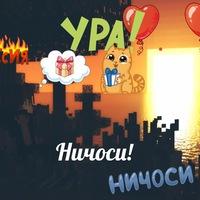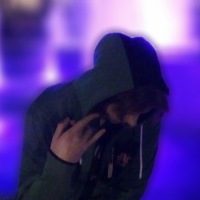
Головна думка и тема твору ІВАН ПІДКОВА Т.Шевченко. І Було колись — в Україні Ревіли гармати;
Було колись — запорожці Вміли пановати. Пановали, добували І славу, і волю; Минулося — осталися Могили на полі. Високії ті могили, Де лягло спочити Козацькеє біле тіло, В китайку повите. Високії ті могили Чорніють, як гори, Та про волю нишком в полі З вітрами говорять. Свідок слави дідівщини З вітром розмовляє, А внук косу несе в росу, За ними співає. Було колись — в Україні Лихо танцьовало, Журба в шинку мед-горілку Поставцем кружала. Було колись добре жити На тій Україні... А згадаймо! Може, серце Хоч трохи спочине. /123/ II Чорна хмара з-за Лиману Небо, сонце криє. Синє море звірюкою То стогне, то виє. Дніпра гирло затопило. «Ануте, хлоп’ята, На байдаки! Море грає — Ходім погуляти!» Висипали запорожці — Лиман човни вкрили. «Грай же, море!» — заспівали, Запінились хвилі. Кругом хвилі, як ті гори: Ні землі, ні неба. Серце мліє, а козакам Того тілько й треба. Пливуть собі та співають; Рибалка літає... А попереду отаман Веде, куди знає. Похожає вздовж байдака, Гасне люлька в роті; Поглядає сюди-туди — Де-то буть роботі? Закрутивши чорні уси, За ухо чуприну, Підняв шапку — човни стали. «Нехай ворог гине! Не в Синопу, отамани, Панове молодці, А у Царград, до султана, Поїдемо в гості!» «Добре, батьку отамане!» — Кругом заревіло. «Спасибі вам!» Надів шапку. Знову закипіло Синє море; вздовж байдака Знову похожає Пан отаман та на хвилю Мовчки поглядає. 0
0
 0
0
Ответы на вопрос
 Внимание! Ответы на вопросы дают живые люди. Они могут содержать ошибочную информацию, заблуждения, а также ответы могут быть сгенерированы нейросетями. Будьте внимательны. Если вы уверены, что ответ неверный, нажмите кнопку "Пожаловаться" под ответом.
Внимание! Ответы на вопросы дают живые люди. Они могут содержать ошибочную информацию, заблуждения, а также ответы могут быть сгенерированы нейросетями. Будьте внимательны. Если вы уверены, что ответ неверный, нажмите кнопку "Пожаловаться" под ответом.

Main Idea and Theme of the Poem "Ivan Podkova" by Taras Shevchenko
The main idea and theme of the poem "Ivan Podkova" by Taras Shevchenko revolve around the historical and cultural significance of the Ukrainian Cossacks, their struggles for freedom, and their connection to the land and the sea. The poem highlights the bravery and heroism of the Cossacks, their love for Ukraine, and their desire for independence. It also portrays the beauty and power of nature, particularly the sea, as a symbol of freedom and adventure.
The poem is divided into two parts. In the first part, Shevchenko describes the historical legacy of the Cossacks and their graves as a reminder of their past glory and sacrifice. He emphasizes their role as warriors who fought for freedom and their connection to the land. The graves are depicted as speaking silently about the Cossacks' longing for freedom and their commitment to their homeland.
In the second part, Shevchenko shifts the focus to the sea and the Cossacks' interaction with it. He describes a scene where the Cossacks gather near the Liman (a lagoon-like body of water) and decide to go for a boat ride. The sea is personified as a wild beast, expressing its power and restlessness. The Cossacks embark on their boats, singing and enjoying the adventure. The poem ends with the image of the leader (otaman) of the Cossacks, wearing a hat and silently observing the sea, suggesting his readiness for new challenges and battles.
The main themes explored in the poem include:
1. Cossack Identity and Heroism: The poem celebrates the Cossacks as symbols of bravery, heroism, and resistance against oppression. It highlights their historical significance and their role in fighting for Ukraine's freedom.
2. Love for Ukraine: Shevchenko emphasizes the deep love and attachment the Cossacks have for their homeland, Ukraine. The poem portrays their longing for independence and their commitment to defending their country.
3. Connection to Nature: The poem explores the connection between the Cossacks and nature, particularly the land and the sea. It uses vivid imagery to depict the power and beauty of the sea as a symbol of freedom and adventure.
4. Legacy and Remembrance: The poem reflects on the Cossacks' legacy and the importance of remembering their sacrifices. The graves of the Cossacks serve as a reminder of their past glory and their ongoing influence on Ukrainian history and culture.
Please note that the above analysis is based on the information available in the search results provided by You.com.
 0
0
 0
0
Топ вопросов за вчера в категории Українська мова
Последние заданные вопросы в категории Українська мова
-
Математика
-
Литература
-
Алгебра
-
Русский язык
-
Геометрия
-
Английский язык
-
Химия
-
Физика
-
Биология
-
Другие предметы
-
История
-
Обществознание
-
Окружающий мир
-
География
-
Українська мова
-
Информатика
-
Українська література
-
Қазақ тiлi
-
Экономика
-
Музыка
-
Право
-
Беларуская мова
-
Французский язык
-
Немецкий язык
-
МХК
-
ОБЖ
-
Психология
-
Физкультура и спорт
-
Астрономия
-
Кыргыз тили
-
Оʻzbek tili

















